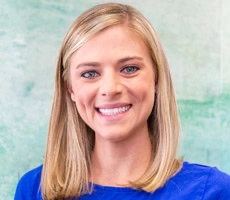
Ken Goldberg
Keynote Speaker: Roboticist, UC Berkeley Engineering Professor, Chief Scientist at Ambi Robotics
-
Travels From:
-
Speaking Fee:
-
Categories:
SPEAKING TOPICS
Ken Goldberg Speaking Topics
VIDEO
NEWS
Ken Goldberg News
-
Ken Goldberg makes surgical robots that can learn
Engineer and artist Ken Goldberg talks about the future of cloud-educated robots as well as his current work developing surgical robots that can learn in a recent interview with Humans Invent. Goldberg thinks that robots will be able to learn by drawing on information stored in the cloud, saying “just in the same way as humans as a species are getting smarter because we are able to share information much quicker and build on innovations faster, robots have that potential as well.”
FAQS
-
How do I book Ken Goldberg to speak at my event?
Our experienced booking agents have successfully helped clients around the world secure speakers like Ken Goldberg for speaking engagements, personal appearances, product endorsements, or corporate entertainment since 2002. Click the Check Schedule button above and complete the form on this page to check availability for Ken Goldberg, or call our office at 1.800.698.2536 to discuss your upcoming event. One of our experienced agents will be happy to help you get speaking fee information and check availability for Ken Goldberg or any other speaker of your choice. -
How much does it cost to book Ken Goldberg for a speaking engagement?
Speaking fees for Ken Goldberg, or any other speakers and celebrities, are determined based on a number of factors and may change without notice. For the most current speaking fee to hire Ken Goldberg, click the Check Schedule button above and complete the form on this page, or call our office at 1.800.698.2536 to speak directly with an experienced booking agent. -
What topics does Ken Goldberg speak about?
Ken Goldberg is a keynote speaker and industry expert who speaks on a wide range of topics such as Technology, Music, Innovation, TED, Robotics, Engineering, Business, Artificial Intelligence and Futurism. -
Where does Ken Goldberg travel from?
Ken Goldberg generally travels from Berkeley, CA, USA and can be booked for (private) corporate events, personal appearances, keynote speeches, or other performances. -
Who is the agent for Ken Goldberg?
AAE Speakers Bureau has successfully secured keynote speakers like Ken Goldberg for clients worldwide since 2002. As a full-service speaker booking agency, we have access to virtually any speaker or celebrity in the world. Our agents are happy and able to submit an offer to the speaker or celebrity of your choice, letting you benefit from our reputation and long-standing relationships in the industry. Please click the Check Schedule button above and complete the form on this page including the details of your event, or call our office at 1.800.698.2536, and one of our agents will assist you to book Ken Goldberg for your next private or corporate function. -
What is a full-service speaker booking agency?
AAE Speakers Bureau is a full-service speaker booking agency, meaning we can completely manage the speaker’s or celebrity’s engagement with your organization from the time of booking your speaker through the event’s completion. We provide all of the services you need to host Ken Goldberg or any other speaker of your choice, including offer negotiation, contractual assistance, accounting and billing, and event speaker travel and logistics services. When you book a speaker with us, we manage the process of hosting a speaker for you as an extension of your team. Our goal is to give our clients peace of mind and a best-in-class service experience when booking a speaker with us. -
Why is AAE Speakers Bureau different from other booking agencies?
If you’re looking for the best speaker recommendations, paired with a top-notch customer service experience, you’re in the right place. At AAE Speakers Bureau, we exclusively represent the interests of our clients - professional organizations, companies, universities, and associations. We intentionally do not represent the speakers we feature or book. That is so we can present our clients with the broadest and best performing set of speaker options in the market today, and we can make these recommendations without any obligation to promote a specific speaker over another. This is why when our agents suggest a speaker for your event, you can be assured that they are of the highest quality with a history of proven success with our other clients.
LISTS
BOOK KEN GOLDBERG
We are happy to assist you with your interest in booking a speaker or celebrity for your event, your organization, and the type of talent you would like to secure, and an agent will be in touch shortly.
Fill out the form below to or call us at 1-800-698-2536 if need immediate assistance.
We respond to most inquiries within 4 hours. Under special circumstances, it may take up to 24 hours.
This website is a resource for event professionals and strives to provide the most comprehensive catalog of thought leaders and industry experts to consider for speaking engagements. A listing or profile on this website does not imply an agency affiliation or endorsement by the talent.
All American Entertainment (AAE) exclusively represents the interests of talent buyers, and does not claim to be the agency or management for any speaker or artist on this site. AAE is a talent booking agency for paid events only. We do not handle requests for donation of time or media requests for interviews, and cannot provide celebrity contact information.

























